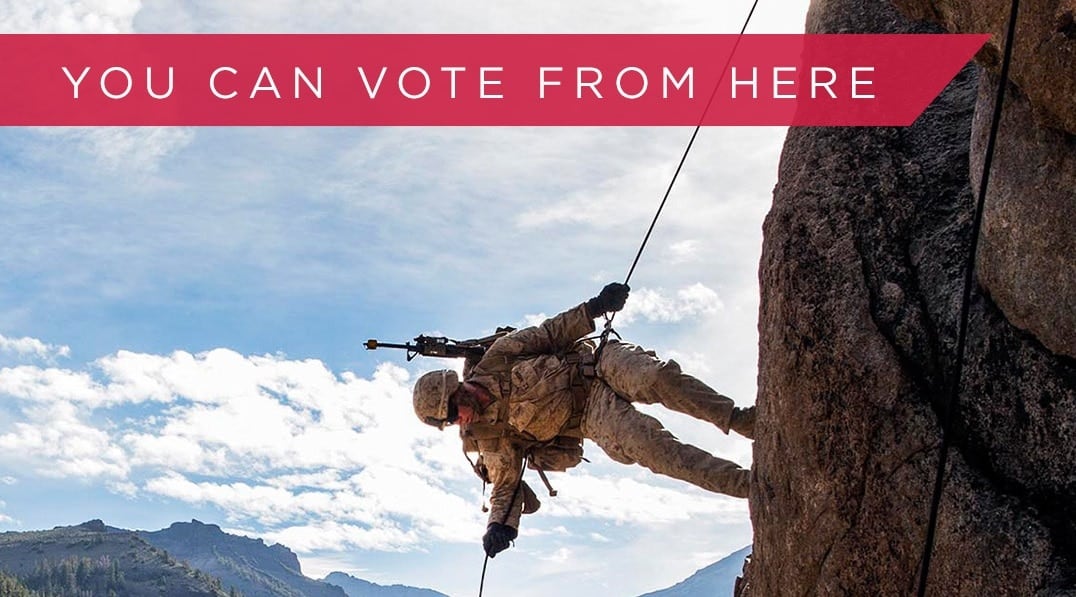If you’re a service member or family member voting by absentee ballot, or an overseas U.S. citizen voting by absentee ballot, it’s not too late to get your vote in and counted for the Nov. 8 elections.
In some cases, voters can still register to vote in their home district. Arizona, for example, allows you to register to vote by 7 p.m. on Nov. 8.
Some states allow you to return voted ballots electronically, others require them to be mailed. Deadlines and procedures vary.
Take Georgia, for example. Oct. 28 is the deadline for requesting a ballot from your local election officials in Georgia. If you haven’t requested one yet, you can do so by filling out the Federal Post Card Application (FCPA) form, which can be downloaded at the Federal Voting Assistance Program website. Georgia allows voters to mail, email or fax the FCPA, but this late in the process, emailing or faxing may be the best option.
Georgia then requires you to return the voted ballot by mail. But with just over a week before the election, if you have requested the ballot and have yet to receive it, download the Federal Write-In Absentee Ballot from the FVAP website.
For all overseas military members and eligible family members who mail their voted ballots, the Defense Department provides free expedited mail service at their military post office courtesy of the Label 11-DoD. Voters can then track the return of their voted ballot up to the point of delivery at their election office.
Some states, including Georgia, will count ballots received after election day — within a certain timeframe — as long as they are postmarked by the Nov. 8 election day. Georgia, for example, will count the ballot as long as it is received by the third day after the election.
Regardless of the state, if you’ve requested the absentee ballot and have yet to receive it, download the Federal Write-In Absentee Ballot, or FWAB, which works as a backup ballot. If your state ballot arrives after you send the FWAB, you can still fill out and send the FWAB; only one will be counted.
Military absentee voters, whether voting from overseas or from another location in the U.S., have certain protections under federal law. The Uniformed and Overseas Citizens Absentee Voting Act, commonly referred to as UOCAVA, applies to military members, eligible family members and U.S. citizens living away from their voting residence.
Some resources for voters
Virtually all the information you need is available from the Federal Voting Assistance Program office at www.fvap.gov. Voters can also email questions to vote@fvap.gov or call 800-438-VOTE (8683). A DSN — 425-1584 — is also available. The website also includes international phone numbers.
Additional measures to take include checking up on:
- The status of your registration and ballot through your state site at https://www.fvap.gov/links#verification.
- Your state’s specific deadlines at https://www.fvap.gov/military-voter.
- Your installation’s voting assistance office, and your unit’s voting assistance officer.
- The non-partisan Overseas Vote Foundation, which offers extensive information and assistance in the absentee voting process.
Karen has covered military families, quality of life and consumer issues for Military Times for more than 30 years, and is co-author of a chapter on media coverage of military families in the book "A Battle Plan for Supporting Military Families." She previously worked for newspapers in Guam, Norfolk, Jacksonville, Fla., and Athens, Ga.




